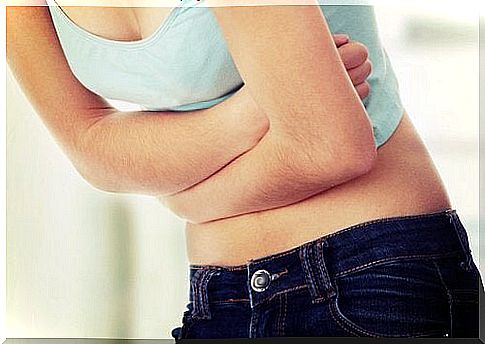How Does Caffeine Poisoning Occur?

Caffeine is a substance that occurs naturally in the leaves and seeds of many plants. We can also artificially produce caffeine and add it to certain foods and beverages. It is considered a stimulant because it activates the central nervous system and increases the level of alertness. But caffeine is not completely harmless. You can experience caffeine poisoning if ingested in large quantities.
Caffeine is found in tea, coffee, many sports drinks, painkillers and other over-the-counter medications. In its natural form, caffeine has a very bitter taste. However, most caffeinated beverages are processed enough to hide its bitter taste.
Caffeine gives most people an “injection” of energy, a bit like an “upturn”. It can improve the mood for a temporary period. Others, however, do not get this boost from caffeine and choose to stop consuming it.
On the other hand, many people feel that caffeine increases their alertness level. Moderation is the secret to caffeine. However, high doses of it can cause anxiety, dizziness, headaches and nervousness. Caffeine can also disrupt our normal sleep patterns and cause the body to ignore our biological sleep rhythm.
Caffeine can be addictive
Most experts agree that caffeine is safe when consumed in moderation. They state that between 200 mg and 300 mg is considered a moderate amount of caffeine for an adult.

However, a person can develop an addiction by consuming only 100 mg of caffeine every day. This means that you may develop withdrawal symptoms (such as fatigue, irritability and headaches) if you suddenly stop taking caffeine.
The caffeine we use comes from various sources such as coffee, tea, soft drinks, energy drinks, over-the-counter painkillers, cold medicine, supplements, diet pills and chocolate.
Manufacturers are increasingly using caffeine as an additive to vitamins and foods. More than 85% of children and adults consume caffeine regularly. This explains why some caffeine users show symptoms similar to a problematic drug addiction, including tolerance and withdrawal.
This is how a caffeine poisoning occurs
We characterize a caffeine poisoning by a recent intake of caffeine in connection with five or more signs or symptoms. These symptoms develop during or shortly after caffeine intake.
The symptoms of a caffeine poisoning are: agitation, nervousness, tension, insomnia, flushing, diuresis and gastrointestinal discomfort. In addition, these symptoms can occur with low doses of caffeine in vulnerable people, such as children, the elderly or people who are not regularly exposed to caffeine.
Symptoms that usually occur after consuming more than 1 gram of caffeine per day are: muscle spasms, unstructured thought and speech, tachycardia or cardiac arrhythmia, restlessness and psychomotor agitation.
A caffeine poisoning can not occur if you have a high tolerance for the drug. In order for a caffeine poisoning diagnosis to be made, the signs and symptoms must lead to significant discomfort or deterioration in social, occupational and other important areas of our lives.
In addition, signs and symptoms should not be due to other medical conditions. Nor should they be explained by another mental illness or intoxication from another drug. The criterion we have cited comes from the Diagnostic and Statistical Manual of Mental Disorders (DSM-5).

Moderation is the key
Like everything else in life, moderation is key. Sensory disturbances (eg ringing in the ears and flashing lights) can occur with high doses of caffeine.
Although large doses of caffeine can increase the heart rate, smaller doses can reduce it. Researchers have not yet been able to determine if excessive caffeine intake can cause headaches.
On physical examination, you may see agitation, restlessness, sweating, tachycardia, facial redness and increased intestinal motility. As we have said, moderating caffeine is key.
How can I end my caffeine addiction?
Caffeine has a half-life of approx. 4-6 hours. Therefore, the symptoms of caffeine poisoning usually go away within the first few days, and have no known lasting consequences.
However, people who consume high doses of caffeine (eg 5 to 10 grams) may need medical attention. Such high doses can be fatal. With age, individuals tend to have increasingly strong reactions to caffeine.

The main complaints of caffeine poisoning are sleep disorders and feelings of hyperactivity. Researchers have observed caffeine poisoning in young people after consuming products with a high caffeine content. These include energy drinks.
Children and adolescents may be at increased risk of poisoning due to several factors. Among these, their low weight, lack of tolerance and little knowledge of the pharmacological effects of caffeine have put them at extra risk.
Finally, do not underestimate the power of caffeine. Consume it in moderation. Caffeine poisoning can lead to deterioration in our personal and professional lives. It can hinder job or school performance, and you can also hinder your ability to regulate emotions or meet commitments.









